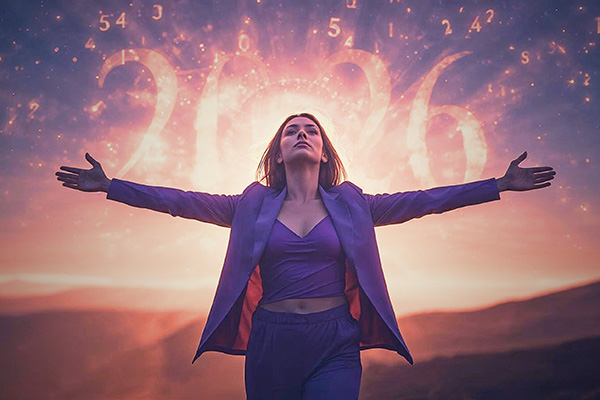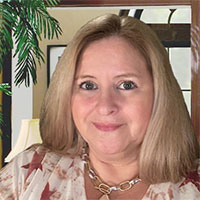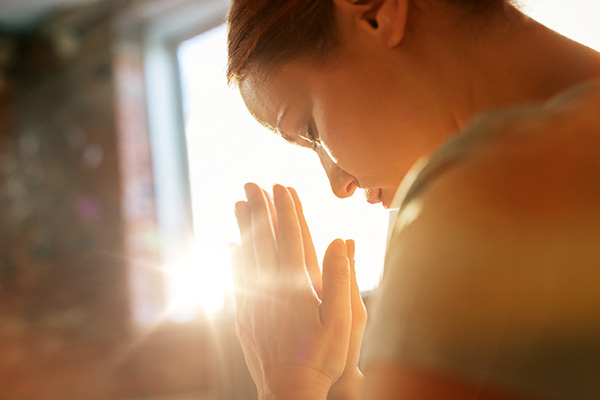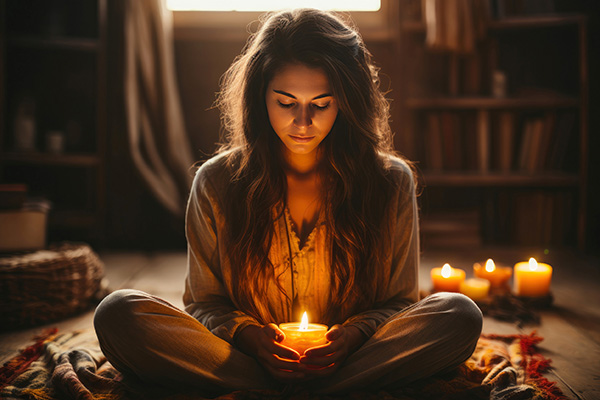The Scorching Year Of The Yang Fire Horse
 Today is the first day of the 2026 Chinese Lunar New Year, and with it the Fire Horse year begins, setting a faster and more intense pace for the months ahead.
Today is the first day of the 2026 Chinese Lunar New Year, and with it the Fire Horse year begins, setting a faster and more intense pace for the months ahead.
The Year of the Fire Horse brings a powerful mix of independence, urgency, and honesty. The Horse is known for its need for freedom, movement, and self direction. When combined with the Fire element, those qualities become stronger and harder to ignore.
This year will push us to stop waiting, or hesitating, or pretending that situations are fine when they are not.
Unlike the cautious Metal Horse or the steady Earth Horse, the Fire Horse is not about careful delay. It favors action. It rewards people who are willing to make decisions and take responsibility for the direction of their lives.
This makes 2026 a year that supports bold changes, clear boundaries, and personal independence.
In many cultures, the Horse symbolizes travel, progress, and the drive to move forward. It is associated with vitality and the desire to explore new territory, both physically and emotionally.
This year invites you to look honestly at where you feel restricted and where you have outgrown your current circumstances. It encourages you to take steps toward a life that feels more honest and more self-directed.
How To Find Your Ideal Psychic Reader
 As with any other professional, choosing the right psychic reader for you can be a tricky process. Just like you wouldn’t want your dentist or auto mechanic to be the wrong fit, neither should your chosen psychic!
As with any other professional, choosing the right psychic reader for you can be a tricky process. Just like you wouldn’t want your dentist or auto mechanic to be the wrong fit, neither should your chosen psychic!
The best approach to take is to trust your instincts. Know what you are looking for in your reader. Do you want answers to specific questions? Are you trying to commune with the spirit of a loved one? Hoping to learn more about yourself?
These are all important questions, as no two readers are alike, and the more tailored your search for a psychic, the more likely you are to find the best match.
Don’t be afraid to “interview” potential readers. The good ones are professionals and will not be offended, as long as you approach them in a diplomatic, respectful manner.
Maybe you won’t like the first person you contact, but if you keep at it, chances are you will find the right one. It’s a lot like dating!
Some people like to find a reader through the recommendation of friends or family. Others may prefer to choose based on a professional network, word-of-mouth from the psychic community, the staff at a local esoteric bookstore, or a spiritual meeting group.
If you are making use of a psychic directory or online network, be sure to read the reviews and feedback left by other clients.
Just as it’s important to track down the best psychic for you, it’s also wise to avoid the “bad” ones. Although it’s perfectly normal and acceptable for a reader to charge for her services, be wary of anyone whose rates are excessive, or who tries to engage in dishonest practices, such as demanding more money in order to remove “bad energy” or “evil spirits.” There are those who would pretend to use a legitimate gift to make a quick buck.
The difference between a professional person and a technician is that a technician knows everything about his job except its ultimate purpose and his place in the scheme of things ~ Richard W. Livingston
Luckily, though, the vast majority of psychics are legitimate and want to help others gain insight into their lives. Once you find a good reader, you may choose to work with them only once, or many times, depending on the nature of your questions or concerns.
A quality reader will tailor her services to you. Would you want your doctor or dentist to give you a “one-size-fits-all” approach? Of course not! When you go for a reading, it should meet your needs. If you feel uncomfortable, say so. And there is no rule saying you have to stick with the same reader forever. You can change readers if you need to.
Hopefully, once you find a reader whose style and psychic gifts work for you personally, it will be the start of a lasting, rewarding relationship for both of you. True psychics exists in this world to help others and to share their gifts through the spirit realms. Genuine psychics can be your ally as you seek to make sense out of the spiritual confusion of your life.
Making Space For New Blessings To Arrive
 At the beginning of a new year many people feel pressured to set big new goals, make major decisions, and “get it right” immediately.
At the beginning of a new year many people feel pressured to set big new goals, make major decisions, and “get it right” immediately.
But for the spiritually aware person, the real work of new beginnings starts somewhere simpler and quieter. It starts with clearing. It means releasing what no longer serve you, so there’s room for what’s next.
Over time, we all accumulate energy that is no longer ours to keep: old emotions, outdated beliefs, and stale patterns that once were protective but now just feel heavy.
If these things are not acknowledged and addressed, they tend to follow us into the every next chapter. That’s why the start of a new year can be a powerful time to pause and intentionally create space.
One simple place to begin is your physical environment. Just opening the windows can already shift the energy in a noticeable way.
Fresh air helps move stagnant mindset and stale energy out and brings in a sense of renewal. As you do this, take a moment to set an intention to release what feels old and invite in clarity, ease, and support.
Some people also choose to cleanse their space with sage or palo santo. This doesn’t need to be elaborate or ritualized. Slowly move through your space, paying attention to areas that feel heavy or overused, such as corners, entryways, and especially places where you often sit with your thoughts. As the smoke moves, silently name what you’re ready to let go of and the kind of energy you want to keep.
2026 Numerology: A Year Of New Beginnings
 Some years are subtle turning points with an inner shift or quiet sense of new beginnings. The energy of 2026 offers exactly that.
Some years are subtle turning points with an inner shift or quiet sense of new beginnings. The energy of 2026 offers exactly that.
In numerology, 2026 is a 1 Year. This is the start of a new nine-year cycle. During this time, our identity and direction become very important.
A year isn’t about finishing what you started last year. It’s about making space for new things to come out. The universe gives us a clean slate in 2026. Even if we don’t know what to write on it yet, we can feel that something inside us is ready to start fresh.
I’ve noticed this change a lot lately when I talk to people about how they feel as they go into this new cycle. Two people close to me show this energy well: one is a client and the other is a friend. Their situations are not rare, and many of us can relate to them.
The client has spent years feeling a strong desire to be more true to himself. Like many people, he hasn’t been unhappy, just not fully expressed.
He has ideas that get people excited, but he always feels “too busy” or “not ready.” He has a good career, and he’s thankful for it, but he’s not passionate about it. He feels like life is good, but not completely for him.
His story is familiar to anyone feeling the nudge to start fresh, without knowing how. The gift of a 1 Year membership is an invitation to take the first step, whether that’s exploring an interest or voicing a long-held dream. It doesn’t require a full plan. You just need the courage to begin.
How Accurate Is A Long-Distance Psychic Reading?
 It isn’t necessary for a psychic to do one-on-one readings for her clients by being with them in person. A psychic or mediumship reading can be just as well be done via phone or the Internet.
It isn’t necessary for a psychic to do one-on-one readings for her clients by being with them in person. A psychic or mediumship reading can be just as well be done via phone or the Internet.
Some people are skeptical of the accuracy of long distance readings or they simply believe they must be able to see their reader face-to-face.
But, there is absolutely no reason to be worried, since all readings are equally effective, no matter the distance or medium of communication.
Psychic energy has no boundaries. Just as there is no “up” or “down” in space, our spiritual energies exist on multiple planes in multiple dimensions all at once. If you’ve ever had a lucid dream, or the vivid memory of a prior lifetime, you’ve witnessed this first-hand.
Having a remote psychic reading is just another method of connection. We can think of this almost like a psychic version of the internet: two or more “addresses” coming together through a shared link.
If we believe in the largely unseen powers of our computers, we can also put good faith in psychic links!
When performing a reading, a psychic will be drawing upon the insights of her own spirit guides or angels.
When giving a remote reading, a psychic will usually ask some establishing questions, such as your name or birthdate. This will form an initial connection and allow her energy to sync up with yours.
Ask Spirit For Patience This Holiday Season
The holidays are supposed to be a time of joy, togetherness, and celebration. But for some of us, it can also be a time of tension, distress, and intense emotions.
Instead of being a time of gratitude, love, and connection, for some of us the holidays mark the resurfacing of old family conflicts, unresolved tensions, and the weight of others’ overwhelming expectations or criticisms.
These challenges often lead to frustration, sadness, anger, or feelings of being overwhelmed, turning what should be a time of love and belonging into one that underscores where our relationships with loved ones are most strained.
At this point, asking spirit or your higher power to help you cultivate the virtue of patience becomes a powerful way to stay grounded and centered.
Patience isn’t just about enduring difficult moments; it’s about being aware of those moments and choosing to respond with grace and dignity rather than impulsively. When tensions rise — perhaps during a family dinner where conversations may become heated or awkward — it is easy to fall back on old patterns and habitual responses. Asking for spiritual support and protection in these moments, however, can provide a higher perspective and an empowered response.
Whether it’s through a silent prayer, a few deep breaths, whispering your favorite mantra, or simply making a conscious call for help in your mind, spiritual presence can help you pause, step back, ground and center, and approach the situation calmly and with more compassion — for yourself and others.


